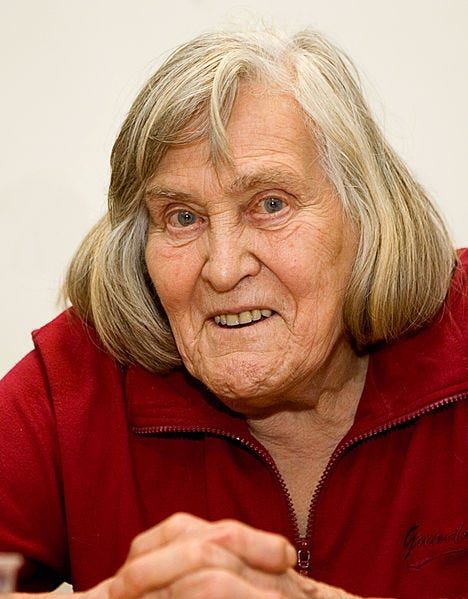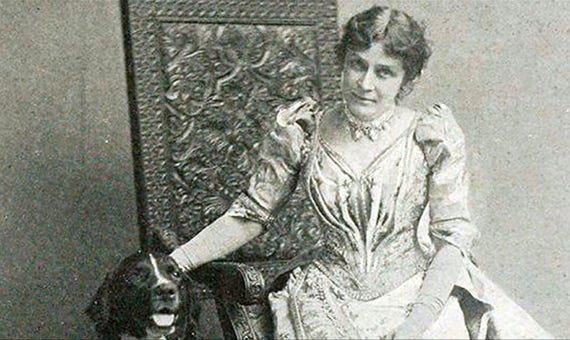My novel’s main character, Grace Evans, is an academic climate scientist. In addition to interviewing climate scientists (mostly men, but not all) about their work and hopes for the future, Unprofessoring’s
kindly spoke with me about her experiences in academic science. Special thanks to for bringing her science nerd lens to my drafts and inspiring me with brilliant writing on her career in science.Turns out that science is a field even more dominated by men than architecture. I admit that’s a gross over-generalization. Likely some fields are less biased than others (Biology? Chemistry?). But there’s no shortage of harrowing stories in newspapers, social media, and films like 2020’s, “Picture a Scientist,” which details a range from casual misogyny to methodical abuse.1
I’ve lost track of the number of articles I’ve seen considering that plaintive question, How can we attract more girls to STEM programs? with depressing statistics of the winnowing of women out of science in high school, college, grad school, post-docs, and tenure-track positions.
Today, I’ll highlight three little-known women of science who did groundbreaking and generative work.2 I’ve sprinkled in a few notes about the fictional character Grace—as a preview of next week’s debut of my novel, Flux. Following next week’s Chapter 1, I’ll release new chapters every other week. In between, I’ll continue to feature Substack’s wonderful nature writers with the Reciprocity interview series.
I’m excited to share Grace’s story with you. A rising academic star, she documents the harms caused by the fracking industry. She’s determined to expose the methane-leaking cracks in gas wells while hiding her own widening cracks—in her integrity, her relationships, her health, and her control over any of it.
Eunice Newton Foote (1819 – 1888)
“What would she have accomplished if she had been born today?” ~ renowned climate scientist,
In 1856, at the American Association for the Advancement of Science annual conference, Ms. Foote presented her findings from ingenious experiments with glass jars that revealed the greenhouse effect on various gases, including CO2. She was 37.
Three years later, John Tyndall published his famous paper on the warming effect of sunlight on CO2 that is credited with the foundation of climate science.3 Big surprise, he didn’t acknowledge or cite Foote’s prior work.
Despite two strikes against her—being a woman and an amateur—she was a force for the intellectual, civil and social rights of women. A prominent feminist, she’s the fifth signatory on the declaration from the 1848 Seneca Falls Convention advocating equal rights for women.
When the fictional Grace Evans is frustrated or demoralized by the sexism surrounding her, she reminds herself of all that Eunice Foote faced and still accomplished.
Dr. Margherita Hack, 1922 - 2013
“The purpose of science is to find out about the world we live in. What we do not understand needs to be faced.” ~ Margherita Hack

Margherita Hack was an Italian astrophysicist and activist. Dubbed “the Lady of the Stars,” I get the sense that she was Italy’s Neal deGrasse Tyson. She headed the observatory at Trieste from 1964 to 1987, the first woman to do so. She was an early advocate for the use of satellites as platforms for astronomical observations. She also directed the astronomy department at the University of Trieste. She even has an asteroid named for her: the “8558 Hack,” discovered in 1995.
Dr. Hack was an atheist in a very Catholic country and didn’t believe in an afterlife. The one and only time she entered a church was to marry Aldo De Rosa, who outlived her by just over a year. They were married for 69 years and had no children. She openly criticized the Vatican for interfering in civic matters of science, like whether to allow stem cell research. (They won. It was banned in Italy, much to her chagrin.)
As a young woman, she was a track and field star who excelled in long jump and high jump. She was a lifelong vegetarian who supported animal rights causes. She also rode a bicycle her whole life and advocated for gay rights. In later interviews, she denied that sexism or misogyny had any effect on her education or career.
Grace never knew she was Dr. Hack’s namesake until her estranged mother, Francesca, told her on her 27th birthday. That awkward moment plays out in chapter 6 of Flux. What happens in the months (and chapters) after that is . . . pretty strange.
Dr. Donella Meadows (1941 – 2001)
“The Earth says: rejoice! You have been born into a world of self-maintaining abundance and incredible beauty. Feel it, taste it, be amazed by it.” ~ Dana Meadows

I learned about this remarkable systems scientist in my early years of sustainable design. Her article, “Leverage Points: Places to Intervene in a System,” dazzled me with its erudition, elegant clarity and humor. That essay convinced me that if only people understood how the world actually works, we could design our environment in dynamic balance with earth’s living systems, rather than as a rapacious domination machine.4
Dana was a beloved Dartmouth professor and MacArthur Fellow who left a brilliant body of work in the short time she was with us. She founded the Sustainability Institute (now the Donella Meadows Institute), combining research in global systems with practical demonstrations of sustainable living, including the development of an ecovillage and organic farm in Vermont, where she lived.5
Meadows died six years before Grace was at Dartmouth on a fellowship, but when she went to Cobb Hill ecovillage for a midsummer celebration, she heard fond stories. Grace wondered how Dana had time to garden. Didn’t she have enough to do between teaching and research?
Big questions in a time of crisis
Throughout her 2023 book, The Quickening, science writer Elizabeth Rush features the voices of scientists—many of whom were women—on a 2019 study trip to Antarctica. It’s a fascinating story about the first scientific team to study the Thwaites, aka “Doomsday Glacier,” in detail.6 Rush weaves details of their research with histories of early Antarctic explorers (very few women) and her own questions about whether to bring a child into an already overpopulated, overheating world.
Such questions arise when pursuing one’s calling at a time of unfolding crisis. In Flux, Grace questions whether studying, documenting, and analyzing the harms of fossil fuel extraction is enough. She’s haunted by worry that it’s all a distraction and wonders how more knowledge can make a difference when policymakers are already not listening.
No, another peer-reviewed research paper can’t stop a fire from destroying a town. But when people around her keep asking, What’s your why? and How shall we live?, Grace is frustrated that has no easy answers. Shouldn’t she know? What was she hoping to achieve by working so hard for all those years?
Homecoming donates 30% of paid subscriptions to a different worthy environmental cause each season. So far, paid subscriptions have supported the Indigenous Environmental Network, the Old Growth Forest Network, and the Center for Humans and Nature. Track past and current recipients here.
Stay tuned next week for Chapter 1 of Flux, coming 16 January.
This is in the spirit of my post last May for International Women’s Day, “Gathering five remarkable women,” which is here.
Foote’s obituary from April 2020
The website, the Donella Meadows Project Academy for Systems Change, is packed with goodness, including this delightful page documenting the clever illustrator Dave Macauley’s cartoons visualizing systems.
Tribute to her on the Cobb Hill ecovillage website
Thwaites, at 64,000 square miles (192,00 km2), is melting at a rate higher than previous predictions, and alone contains up to two feet of potential sea level rise. There are theories about what’s happening, but it’s never before been visited or studied by humans, so there’s much to learn.







I'm so grateful to know about these amazing women scientists who shone even amid all the obstacles placed in their way. Looking forward to your novel!
So many brilliant and brave women! At least they are finally getting a bit of the recognition they have long deserved. Thanks for sharing